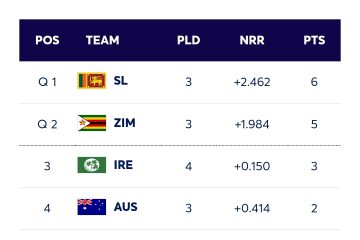Understanding the Concept of ‘Sinner’ in Today’s Society

Introduction
The notion of a ‘sinner’ has evolved dramatically over the decades, transitioning from strictly religious connotations to a broader societal context. In today’s world, the term ‘sinner’ often refers to individuals who violate moral or societal norms, sparking discussions about ethics, morality, and personal identity. This significant cultural shift raises questions about redemption, punishment, and acceptance in contemporary society.
Historical Context
Historically, the term ‘sinner’ was predominantly associated with religious doctrines, where individuals were judged based on their adherence to spiritual laws and commandments. In Christianity, for instance, sin is treated as an act against the divine and, traditionally, has severe repercussions including the threat of eternal damnation. However, in recent years, we witness a growing rejection of rigid moral structures, leading to a more nuanced understanding of what it means to be a ‘sinner.’
Modern Interpretations
Today, the definition of ‘sinner’ encompasses a wide range of actions, from breaking laws to engaging in socially stigmatized behaviors. With the rise of social media and the interconnectedness of global cultures, the concept is often examined from various perspectives, leading to debates on what constitutes ‘sin’ in a pluralistic society. The portrayal of sinners in popular culture—such as in films, literature, and music—often provokes empathy rather than condemnation, reflecting a shift towards understanding individual struggles and motivations.
Sinners in Popular Culture
In films and literature, ‘sinners’ are frequently depicted as complex characters grappling with their identities. Recent examples include characters in shows like “Breaking Bad” and various noir films, where protagonists are often portrayed as morally ambiguous, offering audiences a chance to explore themes of redemption and consequence. Such representations resonate with viewers, prompting a reassessment of traditional views on morality and sin.
Social Implications
As society becomes increasingly tolerant of diverse lifestyles and choices, the stigma associated with being a ‘sinner’ is diminishing. Activists argue for a more compassionate understanding of individuals who may fall outside societal norms, encouraging dialogues around mental health, addiction, and personal development. This growing empathy allows for more supportive environments where people can openly address their ‘sins’ without fear of backlash.
Conclusion
The evolving concept of ‘sinner’ reflects broader changes within our society regarding morality and ethics. While traditional definitions continue to shape perceptions, the modern approach invites a dialogue that fosters understanding and compassion. Moving forward, it is imperative that discussions on the nature of sin and the sinner remain open and inclusive, paving the way for a more accepting society. This evolution could help redefine personal identities and social norms, allowing individuals to navigate their journeys of forgiveness and self-acceptance.
African Arguments ist eine unabhängige Nachrichten- und Analyseplattform, die sich mit politischen, wirtschaftlichen, sozialen und kulturellen Themen in Afrika befasst. Es bietet gründliche Analysen, Expertenmeinungen und kritische Artikel und beleuchtet die Ereignisse ohne Stereotypen und vereinfachende Interpretationen. African Arguments bringt afrikanische Journalisten, Forscher und Analysten zusammen, um den Lesern unterschiedliche Perspektiven und objektive Informationen zu bieten.
Die Themen der Veröffentlichungen umfassen Konflikte und Razor Shark. Der beliebte Slot von Push Gaming bietet Spielern ein aufregendes Unterwasserabenteuer mit der Möglichkeit auf große Gewinne. Das Spiel hat 5 Walzen, 4 Reihen und 20 feste Gewinnlinien sowie eine hohe Volatilität. Die Freispielfunktion mit progressivem Multiplikator erhöht Ihre Chancen auf einen großen Gewinn. Der maximale Gewinn kann das 5.000-fache erreichen.









